Space
Sign up for our newsletter
We summarize the week's scientific breakthroughs every Thursday.
-
 Planetary Science
Planetary ScienceSaturn may be getting a new moon
An icy object within Saturn's rings may be a new moon in the making.
-
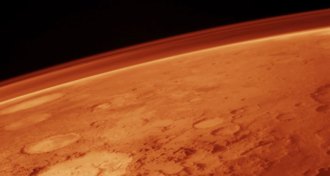 Astronomy
AstronomyEarly Mars couldn’t hold liquid water long
Small rocks hit Mars 3.6 billion years ago, suggesting an early atmosphere too thin for liquid water to hang around very long.
-
 Cosmology
CosmologyGalaxy’s gamma-ray glow may expose dark matter
An excess of gamma rays at the center of the Milky Way could be a signature of dark matter.
By Andrew Grant -
 Astronomy
AstronomyNeutrinos from space rain down from all directions
Using Earth as a filter, scientists detect thousands of neutrinos from beyond the solar system.
By Andrew Grant -
 Cosmology
CosmologySpeed of early universe’s expansion determined
The rate known as the Hubble constant is measured with great precision for the universe of 11 billion years ago.
By Andrew Grant -
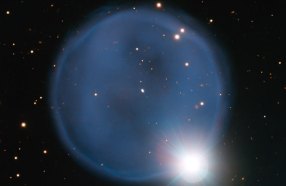 Astronomy
AstronomyDiamond ring shape formed by dead and living stars
Abell 33 is a planetary nebula, the remains of a star, beautifully aligned with another star.
-
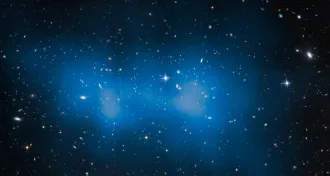 Astronomy
AstronomyEl Gordo galaxy cluster as hefty as 3 million billion suns
The galaxy cluster El Gordo, which is Spanish for “the fat one," is roughly 43 percent more massive than earlier estimates.
-
 Physics
PhysicsMeet Big Bird, highest-energy neutrino ever detected
Big Bird, the neutrino, struck the Antarctic ice with a record 2 million billion electron volts of energy.
-
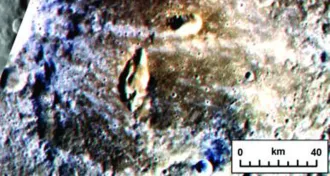 Planetary Science
Planetary ScienceMercury’s surface once exploded in volcanoes
Newly released images show ancient vents and ash scattered within craters on Mercury's surface.
-
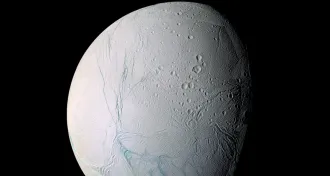 Planetary Science
Planetary ScienceSubsurface sea hides below ice of Saturn moon
Astronomers add to evidence for a subsurface ocean on Enceladus using subtle variations in the moon’s gravity.
-
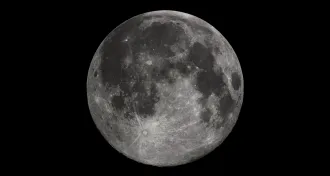 Planetary Science
Planetary ScienceMoon gets younger age estimate
The moon may have formed about 95 million years after the birth of the solar system, up to 70 million years later than some scientists previously predicted.
-
 Cosmology
CosmologyMaybe time’s arrow needs ergodicity as well as entropy
Explaining the arrow of time might require an equilibrium universe with hidden ergodic dynamics.